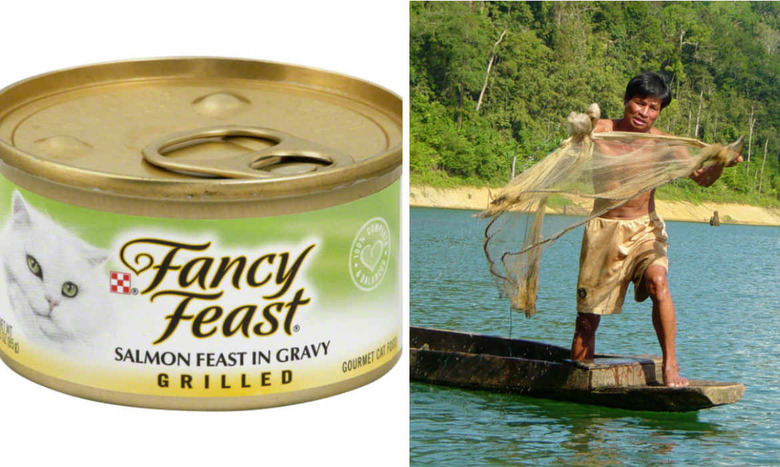Slave Labor Practices In Nestlé's Seafood Supply Chain Confirmed By Independent Study
Nestlé has confirmed suspicions of slave labor practices in its seafood supply chain. Instead of waiting for rumors to turn into scandalous facts, Nestlé, one of the largest food corporations in the world, hired an independent nonprofit research team, Verite, to investigate the claims that fishermen from Thailand, Burma, and Cambodia, who catch the seafood used in Nestlé's Purina Fancy Feast cat food, have been extremely mistreated and are subject to slave-like labor practices.
Nestlé has promised to publish the reports and update their labor practices, which will now include enforcing new rules for suppliers, training boat owners, and bringing in outside auditors to make sure laborers are being treated right.
Nestlé launched the investigation in December 2014, and confirmed that although most of its seafood supply does not come from Southeast Asia, they still do some major business in the Thailand area.[slideshow:
"As we've said consistently, forced labor and human rights abuses have no place in our supply chain," Magdi Batato, Nestlé's executive vice president in charge of operations, said in a statement. "Nestlé believes that by working with suppliers we can make a positive difference to the sourcing of ingredients."
According to Nestlé, as well as similar reports from an investigation undertaken by the Associated Press, seafaring life in the Cambodia and Myanmar region can be brutal.
"Sometimes, the net is too heavy and workers get pulled into the water and just disappear," one anonymous Burmese worker said in the Verite Nestlé study. "When someone dies, he gets thrown into the water."
This is not the first time Nestlé has been questioned about its labor practices. Just last month, Nestlé, along with Hershey and Mars, was sued for allegedly utilizing child labor to harvest cocoa in Africa.
